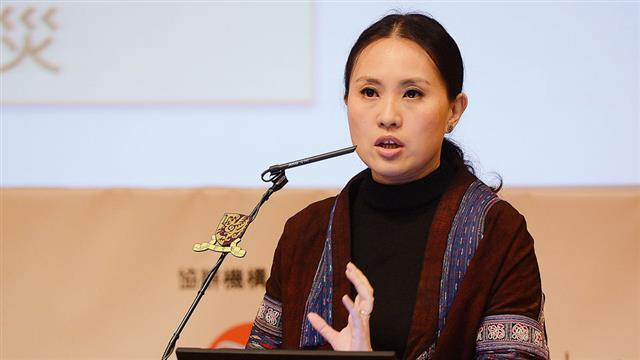The second CUHK 50th Anniversary Fair Public Lecture, entitled 'Evidence-based Health and Medical Intervention: How Do We Do Our Work in Rural Ethnic Minority Communities in China?', was held on 19 April at the Hong Kong Central Library. The lecture was delivered by Prof. Emily Chan, director of the Collaborating Centre for Oxford University and CUHK for Disaster and Medical Humanitarian Response (CCOUC).
Professor Chan promotes public health and disaster preparedness education in rural China. She said the work of CCOUC was imperative because Asia had been the most disaster-prone region in the world in the past 15 years. She explained that by 'evidence-based health and medical intervention', she meant that they would apply what they learned from their current public health promotion projects in rural China to other regions through scientific research, education and knowledge transfer.
CCOUC has had plans to carry out projects in 10 remote villages housing ethnic minority communities who live in extreme poverty and are subject to natural disaster. Each project has four stages: site selection, needs assessment, intervention, and evaluation. Now, projects at five villages have been completed.
Professor Chan talked about the challenges of working in remote parts of China: 'Once I took about 40 students with me on a project. In order to have enough cash for medical treatments in case of emergency, we brought over RMB100,000. The largest face value paper currency in China is the RMB100 note. We were cash-bloated.'
She also said, 'When students join the project, they always think they are going to change the world. But after the visit, they often find that they are the ones changed. The experience shows them how little they know.'
Please click here for details and here for video clip of the lecture.



